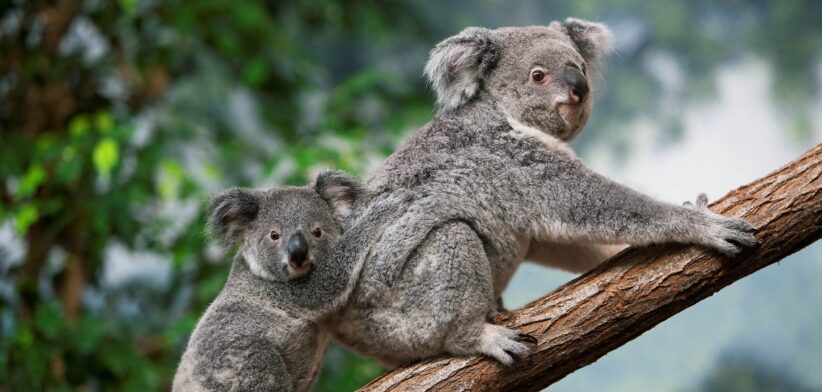Researchers have called on injured koalas to be re-located to different regions when recovered, to address a decline in genetic diversity which is threatening the Australian icon.
University of Sydney Professor Carolyn Hogg said in recent decades, koalas had come under increased pressure, which had reduced the animal to isolated patches of its former range.
Professor Hogg said the loss of genetic diversity was a worrying trend that was being exacerbated by urban development, habitat destruction and climate change.
“Isolated populations are at higher risk of inbreeding, making them more susceptible to disease and vulnerable to future threats,” she said.
Professor Hogg said the study, which mapped koala populations across Australia, suggested a number of options to increase genetic diversity, including an end to state-based requirements in New South Wales and Queensland which stipulated koalas entering veterinary care must be returned to the place they were found.
“Returning a recovered koala to a similar region, rather than the exact location, could not only have a significant impact on the likelihood of the koala being injured again, but would also promote genetic diversity by allowing the rescued animals to mix with other koala populations.”
She said other measures included creating wildlife corridors that allowed koalas to move more freely and safely between areas and moving koalas from one area to another to breed new genes into a population.
Professor Hogg said the study found that koalas in Queensland were the most genetically diverse at an individual level and koalas in New South Wales harboured the greatest number of genetic variants, making these populations critical for the long-term survival of the species.
She said it was not only a decline in the overall genetic diversity of koala populations that was of concern to conservation scientists, with the team observing that the diversity of immune genes was also decreasing.
“With koalas affected by serious diseases such as chlamydia, the decline in the marsupial’s immune genes is a worrying trend that could leave it more vulnerable to diseases in the future.”
Read the full study: Genomics identifies koala populations at risk across eastern Australia.








